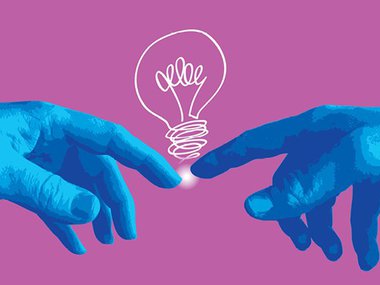Question Your World: What Can Scientists Learn from Our Smartwatches?
The data collected from social media certainly has been a hot topic for a while now. Don’t forget though, social media apps on mobile phones are just one part of the ever-growing internet of things! As more and more smart devices become available, there will be more and more data out there. While there could be inappropriate, or even harmful, uses of data, some scientists have used metric data from smartwatches to uncover some pretty amazing medical findings. So, what can scientists learn from our smartwatches?
In the last few weeks, medical researchers published two big science articles using data from smartwatches. Why smartwatches? Well, consider who's wearing these devices. More than 80 million Americans wear a smartwatch or some kind of fitness tracker. That's just here in the USA!
These devices were the subject of a UK study regarding patients being screened for Parkinson’s disease. This neurological disease is often diagnosed too late, once the brain has experienced irreversible damage. Symptoms of this disease include involuntary shaking, slow movement and stiff muscles. By monitoring the motion, speed and activity levels of over 100,000 smartwatch users' data for just one week of time between 2013 and 2016, researchers were able to predict which individuals would go on to develop Parkinson’s seven years later. Early detection could be a game changer in helping families approach new therapies and planning for their loved ones.
Annually, in the United States alone, nearly 90,000 individuals are diagnosed with Parkinson’s. With further testing and research, smartwatches could become a viable screening tool for not only Americans, but as this technology continues to spread around the planet, also millions of people worldwide.
The second article published recently featuring smartwatch data relates to something every single one of us does: sleep. Thirty thousand–yes 30, 000!–individuals from 11 countries were monitored to better understand how different cultures and countries sleep. After studying 52 million smartwatch data logs over the course of four years, they shared their results reflecting sleep quality and quantity.
There were some noticeable differences in global sleep patterns and duration. Japan averaged a little under seven hours a night as the planet’s shortest sleep duration while Finland averaged eight hours as the longest in this study. On average, they observed most people went to bed around midnight and woke up around 7:42 a.m.
So, why does all this matter? Because sleep is very important for our overall health. This research was essentially a study of the relationship between an individual’s activity and sleep. As a part of this study, the researchers saw that increasing daily activity can improve sleep quality, observing shorter time needed in falling asleep and waking up.
Findings from this study will now be available for others studying the relationship between sleep and human health. Medical research like this also great for seeing how both an individual and an entire culture could better understand aspects of their own daily ongoings.
So there you go, two new science findings published using smartwatches as the tool to gather the metric data. With 1.2 billion smartwatch users on Earth right now, that’s a lot of data and a lot of future discoveries!


